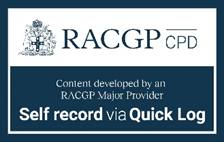Are nuts and seeds safe for patients with diverticular disease?
Read the research refuting the misconception that nuts and seeds should be avoided by your patients with diverticular disease.
-1.jpg)
HealthCert Education
Diverticular disease is a common gastrointestinal condition, particularly prevalent in Australia, where it affects approximately one in three individuals over the age of 45. Historically, medical advice for those diagnosed with diverticular disease included avoiding certain foods, particularly those that are small, hard, or sharp — like nuts and seeds. The rationale behind this advice was the concern that such foods could become trapped in the diverticula, leading to inflammation and subsequent complications.
Here’s what GPs should know about diverticular disease.
Revisiting dietary recommendations: What does current research say?
Current research has challenged and ultimately debunked the longstanding belief that nuts and seeds pose a risk to patients with diverticular disease. In particular, a pivotal cohort study involving 47,228 men aged 40 to 75 found no association between the consumption of nuts, seeds, corn, or popcorn and an increased risk of diverticulitis [1]. On the contrary, the study observed a protective effect from the consumption of nuts and popcorn against diverticular complications.
The protective benefits of these foods are largely attributed to their high dietary fibre content. Nuts and seeds are rich in both soluble and insoluble fibre, which play critical roles in gastrointestinal health. Insoluble fibre adds bulk to the stool and accelerates its passage through the digestive tract, thereby reducing the likelihood of constipation — a known risk factor for diverticular formation. Soluble fibre, on the other hand, helps to lower inflammation within the colon by promoting the growth of beneficial gut bacteria, which produce short-chain fatty acids that have anti-inflammatory properties [2].
Additionally, a higher overall intake of dietary fibre has been consistently linked with a reduced risk of diverticulitis. For instance, research indicates that women who consume a variety of fibre-rich foods, including nuts and seeds, have a significantly lower risk of developing diverticulitis compared to those with lower fibre intake [3]. This evidence supports the inclusion of nuts and seeds in the diet as a preventive measure against diverticular disease complications.
The misconception that nuts and seeds should be avoided by patients with diverticular disease has been thoroughly refuted by scientific evidence. Physicians can now confidently recommend the inclusion of these foods as part of a balanced, high-fibre diet.
Dietary guidelines for managing diverticular disease align with general healthy eating principles, emphasising the consumption of whole grains, fruits, vegetables, and the regular inclusion of nuts and seeds [4].
By adhering to these guidelines, patients not only support their overall gastrointestinal health but also actively reduce their risk of diverticulitis and other complications associated with diverticular disease.
– Sarah Marko, Accredited Practising Dietitian
Learn more with HealthCert's online courses in Clinical Nutrition.
|
|
|
Read another blog like this one: Is it gluten or fructans?
References
[1] Strate LL, Liu YL, Syngal S, Aldoori WH, Giovannucci EL. Nut, corn, and popcorn consumption and the incidence of diverticular disease. JAMA. 2008 Aug 27;300(8):907-14. doi: 10.1001/jama.300.8.907. PMID: 18728264; PMCID: PMC2643269.
[2] Anderson JW, Baird P, Davis RH Jr, Ferreri S, Knudtson M, Koraym A, Waters V, Williams CL. Health benefits of dietary fiber. Nutr Rev. 2009 Apr;67(4):188-205. doi: 10.1111/j.1753-4887.2009.00189.x. PMID: 19335713.
[3] Ma W, Nguyen LH, Song M, Jovani M, Liu PH, Cao Y, Tam I, Wu K, Giovannucci EL, Strate LL, Chan AT. Intake of Dietary Fiber, Fruits, and Vegetables and Risk of Diverticulitis. Am J Gastroenterol. 2019 Sep;114(9):1531-1538. doi: 10.14309/ajg.0000000000000363. PMID: 31397679; PMCID: PMC6731157.
[4] Hawkins AT, Wise PE, Chan T, Lee JT, Glyn T, Wood V, Eglinton T, Frizelle F, Khan A, Hall J, Ilyas MIM, Michailidou M, Nfonsam VN, Cowan ML, Williams J, Steele SR, Alavi K, Ellis CT, Collins D, Winter DC, Zaghiyan K, Gallo G, Carvello M, Spinelli A, Lightner AL. Diverticulitis: An Update From the Age Old Paradigm. Curr Probl Surg. 2020 Oct;57(10):100862. doi: 10.1016/j.cpsurg.2020.100862. Epub 2020 Jul 18. PMID: 33077029; PMCID: PMC7575828.

 1800 867 1390
1800 867 1390
 How to claim your CPD hours
How to claim your CPD hours.jpg)
.jpg)
-1.jpg)



